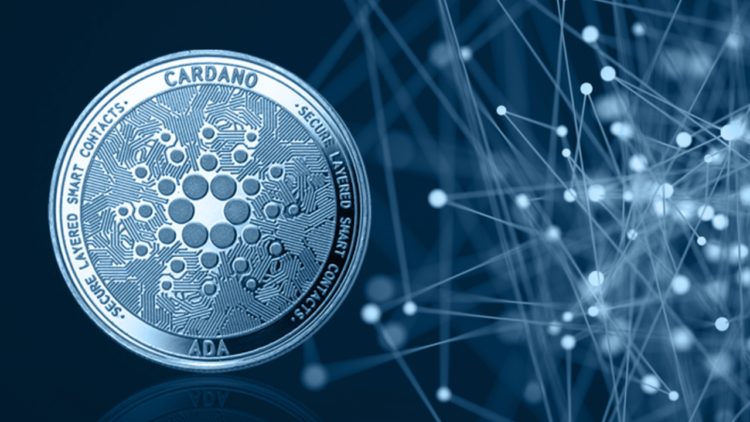- Meanwhile, the IOG report further shared present and future upgrades to the smart contract platform, wallets, services, and governance.
- Notably, the report revealed that more than 100 projects were live on Cardano, with over 1,000 awaiting live deployments.
Popular blockchain research and development firm, Input Output Global (IOG) has shared a success report of the latest developments on the Cardano network. The firm, in its report, analyzed the various statistics and other information about all planned and already executed updates on the network. According to Input Output Global, it initiated the report to keep users abreast of the unfolding developments on Cardano in a bid to get their feedback.
Notably, the report revealed that more than 100 projects were live on Cardano, with over 1,000 awaiting live deployment. More so, it revealed that the network hosts over 6 million native tokens and records a total of 53 million transactions. Meanwhile, the IOG report further shared present and future upgrades to the smart contract platform, wallets, services, and governance.
ICYMI: Our weekly #Cardano development update is live on #EssentialCardano! Check out what our dev team has been up to and get the latest on our development progress. As always, we welcome your feedback and comments👇 https://t.co/Fd7ql4p5UD
— Input Output (@InputOutputHK) October 9, 2022
Developments on the Cardano network’s core technology
First, the report indicates that the consensus team has improved the performance of the ChainSync jumping logic, necessary for Genesis. More so, the team, according to the report, “rewrote the mempool execution in the UTXO HD prototype, solving the issues restraining the team from “running system-level benchmarks.” Similarly, they enhanced the execution of the sequence of “differences and elaborated a test sign-off list for UTXO HD feature.”
The ledger team also removed “ledger dependencies through the Cardano-base and Plutus repositories. This, as revealed, helps to grossly resolve cost model serialization issues. More so, the removal of the ledger dependencies help to foster the process incurred in the release of the cost model. Shortly after the removal was done, the team “improved the interface of the ‘Value’ multi-asset type and the ledger compilation process, and kept working on the codebase re-organization.”
Furthermore, the IOG report confirmed the mainnet status of the Vasil upgrade. It says the team plans to continuously add resources to the Cardano node tests GitHub repository. This helps to “provide creators and builders with the tools to continue building on Cardano,” the report added.
Development of Cardano wallets and services
On wallets and services, the report says the Daedalus team recently worked on regression tests for the imminent release of Daedalus v.5.1.0. Further, the team addressed some issues incurred in the ‘StoryBook’, “a frontend workshop for building the wallet’s UI components and pages in isolation.” In regards to its lace desktop development, they executed “refinements in the fee calculation, investigating how to “get missing network protocol parameters from Cardano-wallet, and made some improvements to multi-address usage.” More so, the team reportedly improved Cardano-wallet error handling for error submission. Further, they commenced work towards migrating lace-browser’s end-to-end tests to lace-desktop.
Smart contract
On smart contract development, the Plutus team, as reported, is working on the SECP release process. According to the report, the team commenced work on the main exploratory parts of the program increment (PI). Further, they executed Babbage support in Plutus tools and also worked on the Marconi MVP. In the same vein, the Marlowe team tagged the Marlowe validators as “release candidates.” Also, they developed a robust “specification of the CIP-30 client for Marlowe Runtime.” Remarkably, the Marlowe team designed Marlowe Runtime CLI architecture and fixed some validator problems. Lastly, the report claimed the team “executed two Marlowe contracts with Babbage capabilities on mainnet.”
Governance (Fund10)
Notably, the report also revealed ongoing developments in the governance aspect of the network. It says the project catalyst has entered its “regularly cooldown period between funds.” This period, as revealed, allows the community to reflect on Fund9 outcomes and look forward to the unveiling of Fund10.
Worth noting that Catalyst, has over time, developed from $250k in Fund1 to $16m in Fund9. It has reportedly received and processed more than “4 thousand proposals and cast over 1.5 million votes.” As of press time, the Catalyst houses a community of over 60 thousand members across the globe.
Looking forward to Fund10, the report says there is “wide recognition that processes need to become more mature, simple, autonomous, inclusive, and continue to demonstrate value to the broader Cardano ecosystem.” These demands will necessitate “some important changes and updates on the horizon.”
Credit: Source link











































































































































